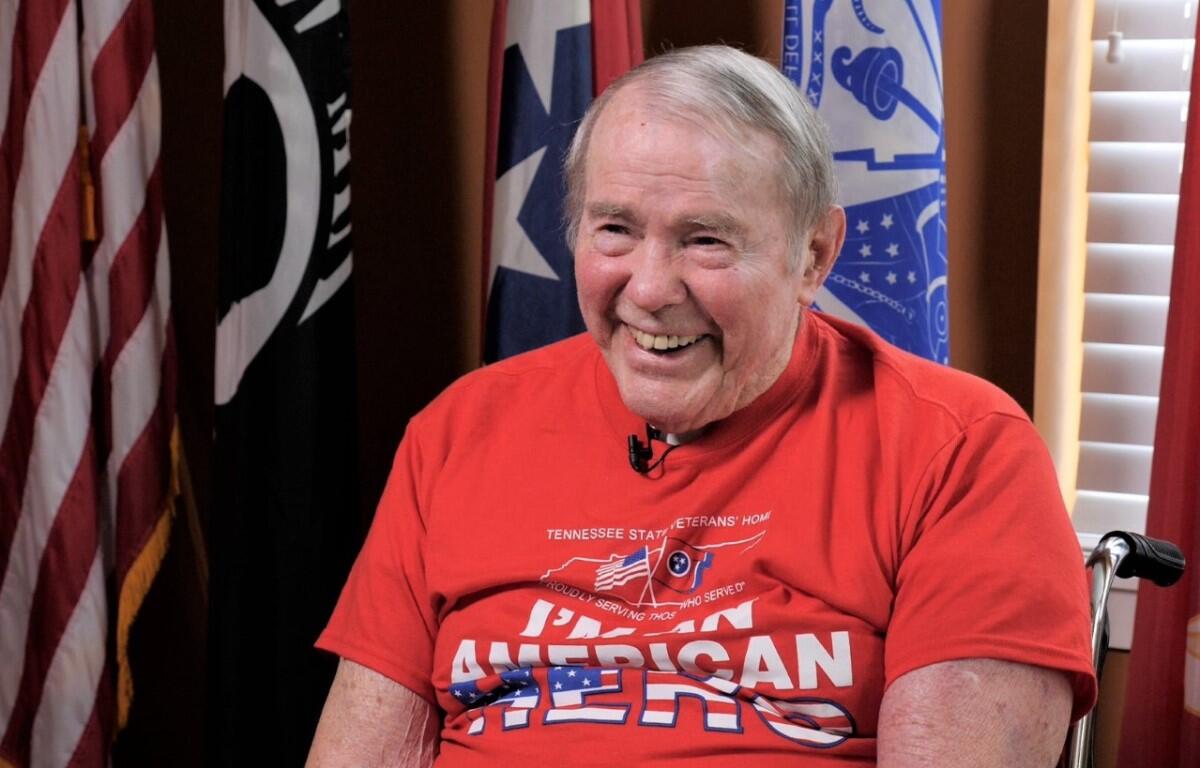CLARKSVILLE, TN (CLARKSVILLE NOW) – The year is 1942. The Andrews Sisters are playing on the family radio as you light a Lucky and read the afternoon paper.
The world has become consumed with whispers of another great war, and you see an ad on Page 3: The U.S. military is ramping up recruiting efforts. As you head to the nearest recruitment center, you can’t help but wonder what lies ahead.
In honor of Veteran’s Day, Clarksville Now visited with a member of the Greatest Generation who lived that experience, and who bravely served his country in World War II.
Myers: ‘I was there’
Thurell “Bruce” Myers, 98, is a Clarksville native who served in the South Pacific on multiple aircraft carriers and destroyers. He was a gunner’s mate during the war and later went into special weapons in the 1950s.

He enlisted in May 1942, just as the war began.
“I told my daddy I wanted to go in the Navy,” he said, also joking that his dad was sorry to see him go because he was losing a farmhand.
Myers trained at the Navy base in Norfolk, Virginia. While there, he learned all about the weapons used on Navy vessels. From a list of jobs available, he specifically chose gunner’s mate, whose responsibility is maintaining and inspecting weapons.
“I picked gunner’s mate because I always liked guns, but in an honest way. Not anymore.”
Myers was there the day Japan surrendered on Sept. 2, 1945. He was part of the fleet that went into Tokyo Bay the day the declaration was signed on board the USS Missouri, which was also present at both the battles of Okinawa and Iwo Jima.
“When the Japanese gave up, I was there. It was a good thing to have it happen like that,” he said, noting he felt sorry for the Japanese people and the way they were treated by U.S. Marines during the war.
“Well, I felt sorry for them in a way, because the Marines would beat them around with a gun, you know. They were just that way. That’s why the Marines were Marines.”
Myers said that when the declaration was signed, wartime restrictions were lifted, including one that prohibited sailors from smoking on the top deck, which was perhaps one of the first things those wartime heroes did after the declaration was signed.
“Before, you couldn’t smoke on the deck or anything like that because they (the Japanese) could spot you. But after that (the declaration was signed) we all got cigars,” he said with a grin.
After the war
Myers served in the Navy for 27 years, retiring in October 1969. He said he would have gladly kept going.
“I only did 30 years. I wanted to do 30 more, but they wouldn’t let me,” he said with a laugh.
After the Navy, he went to work for TVA and retired 16 years later.
Myers reflected on how much things have changed over the past 80 years.
“It’s a lot different now than it was then. I think that people was more friendly and truthful and all like that,” he said. “On the first ship I was on, you could just leave your billfold on the bed and not worry about someone stealing it. It’s not that way anymore. I’m sorry to say that.”
He also shared some advice for young people.
“My advice is to keep your head at a level, stay out of trouble, and do your job right. That’s about the size of it.”


